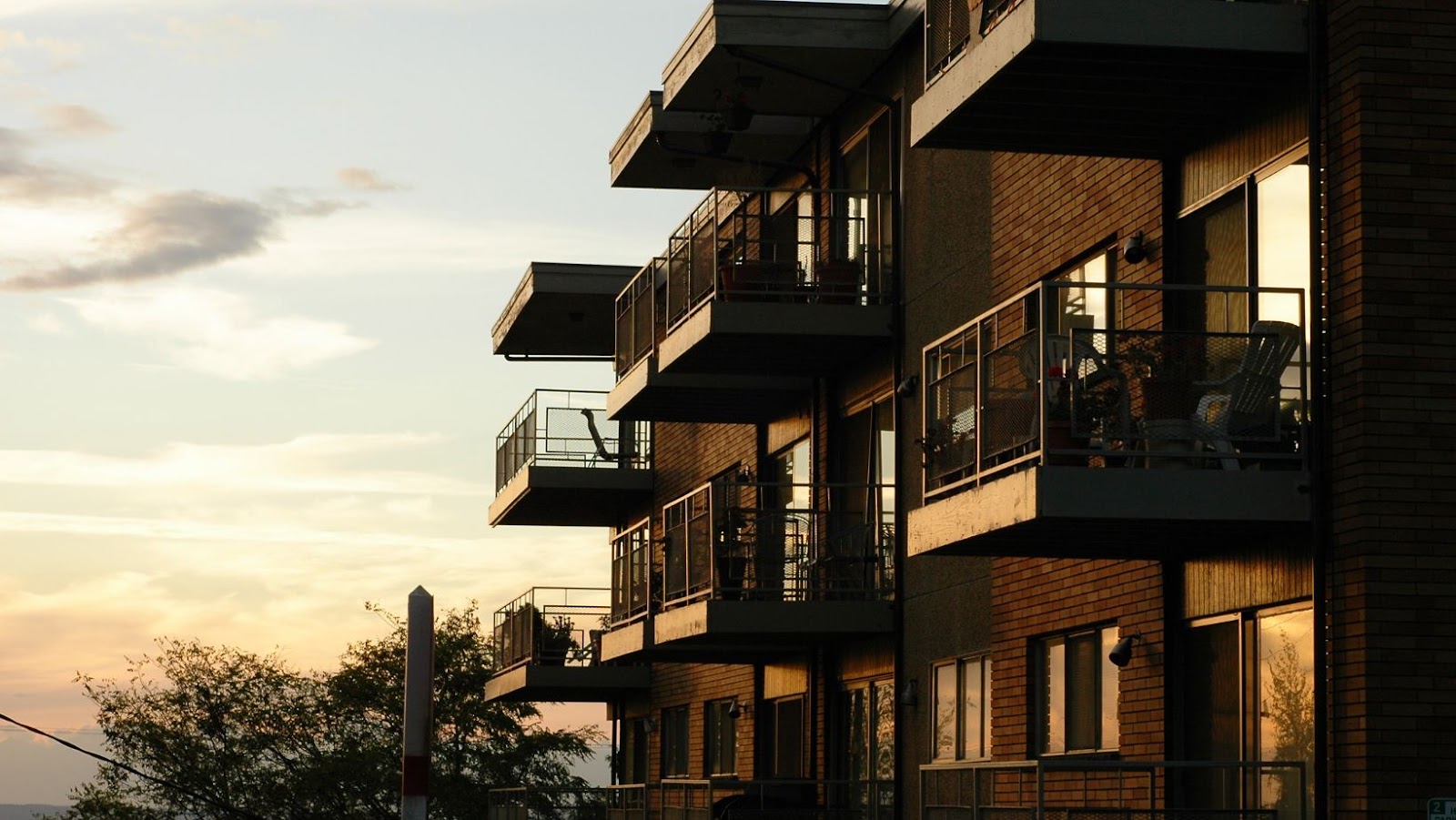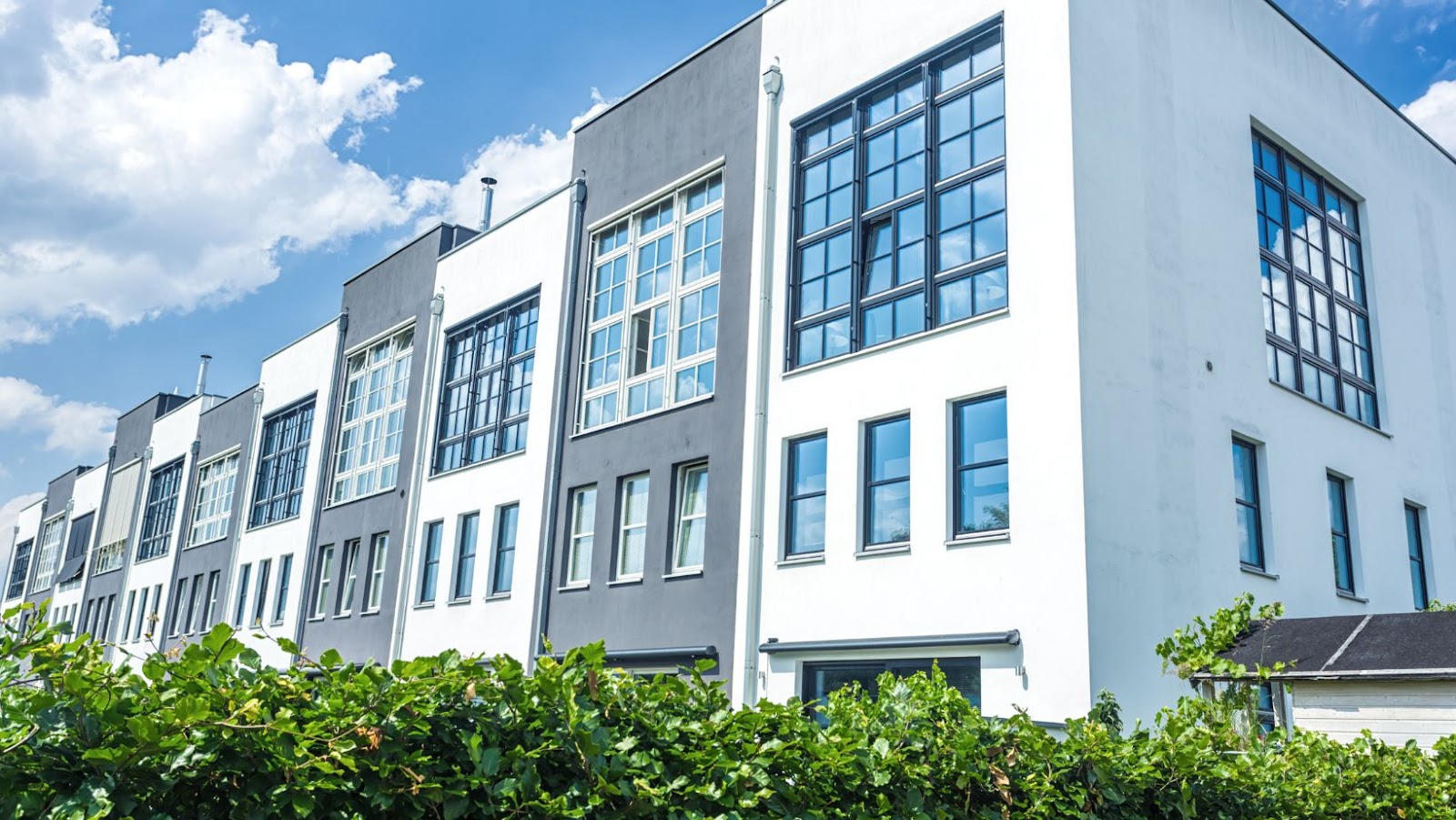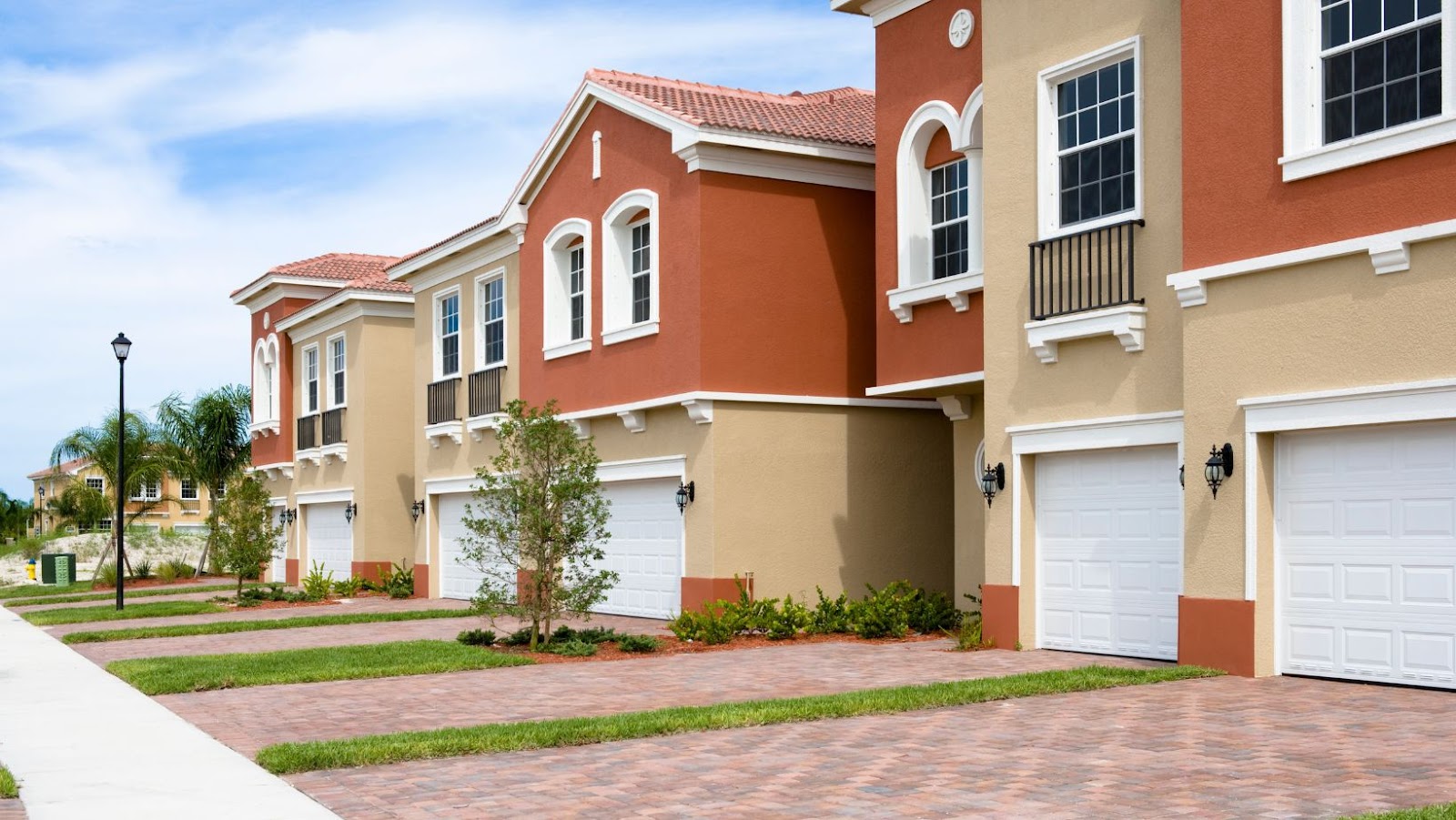
What is the Difference between a Townhouse and a Condominium
When it comes to housing options, there is a lot of confusion about the difference between townhouses and condominiums. While there are certain similarities between the two, there are some significant differences between them that must be taken into account when making a decision about which is best for you.
In this article, we will discuss the key differences between a townhouse and a condominium to help you get a better understanding of which could be the right fit for you.
Definition of a Townhouse
A townhouse is a multi-family residential dwelling unit that typically has two or more floors and shares at least one common wall with an adjacent unit. The units are often connected in the form of a row and usually have small yards or outdoor areas to provide additional privacy between dwellings. While townhouses and condominiums are similar in terms of ownership, there are fundamental differences between them such as the type of construction, size of each unit, as well as shared facilities and amenities available to residents.
Townhouses are typically arranged into blocks that may contain one or multiple units, with doors facing onto a public sidewalk and street. Townhomes generally have their own roof, basements and enclosed backyard area that adds privacy to the residence. They often offer more living space than apartments and condominiums; however, they can also be more expensive due to their location or architectural style.
In contrast to a condominium or apartment complex where multiple occupants share common walls and shared spaces within each unit such as elevators, laundry facilities, gyms and swimming pools; townhouse residents enjoy a more independent lifestyle in terms of owning their own dwellings as well as benefit from having private front yard spaces for personal use. Furthermore, in many states homeowners associations require townhouses to adhere to certain standards by implementing policies such as painting restrictions or other maintenance regulations which promote cohesive home designs throughout the neighborhood.
Definition of a Condominium
A condominium, or “condo,” is a form of ownership of an individual apartment-style unit within a building or complex. In commercial real estate, it is usually referred to as an “apartment” or “flat,” while in residential estate it is commonly referred to as part of a multi-unit dwelling (MUD). Each owner within the condominium owns the real property owned by him/her in their own apartment and share the ownership with other owners for common facilities such as hallways and elevators. Condos are often sold on long-term leases, with the rental fees increasing over time according to lease renewals.
Ownership of a condo entails advantageous privileges to the buyer. For example, with respect to their home’s positive appreciation potential, buyers can enjoy tax benefits provided by allowable deductions of expenses related to housing such as mortgage interest deductible. Additionally there may be facility costs associated with services like access to health clubs, room cleaning services along with repair and maintenance fees that are all fair game for tax deductions. This is unlike a townhouse where tax deductions may not be applicable due to its typically single unit pattern style residency set up within a neighborhood community.
What are the Pros and Cons of Living in a Townhouse or Condominium?
The main difference between a townhouse and a condominium is that a townhouse usually has its own yard, while a condominium usually shares common outdoor spaces. Both townhouses and condominiums have their own pros and cons to consider before making a decision. Let’s take a look at some of the advantages and disadvantages of living in a townhouse or condominium:
- Advantages of living in a townhouse:
- Advantages of living in a condominium:
- Disadvantages of living in a townhouse:
- Disadvantages of living in a condominium:
Pros of Living in a Townhouse
There are many advantages associated with choosing a townhouse over other types of properties.
- First, townhouses offer more privacy than some other types of dwellings such as duplexes though properties like Bennington Apartments Fairfield CA offer good options. Townhouses typically have fewer walls shared with neighboring units, offering a greater sense of security and solitude to the occupants.
- Second, townhouse complexes offer the convenience of onsite amenities such as swimming pools and tennis courts that are typically shared amongst the complex members. This convenience can help to offset the cost of living expenses by eliminating time-consuming trips for outside recreation or leisure activities.
- Third, since most townhouse developments are planned communities rather than isolated single homes, they often come with built-in social infrastructures like playgrounds and parks where children can play within sight of their parents while they interact with other families in the area.
- Fourth, townhouses typically require less maintenance than individual homes because they share common walls and driveways rather than having exposed exteriors that need constant upkeep. This considerably reduces property taxes and cuts down on repair bills since any outdoor repairs become the responsibility of the homeowners’ association instead of each individual homeowner.
Pros of Living in a Condominium
There are many advantages to living in a condominium when compared to other housing options. Condominiums can provide all of the luxuries and benefits of owning a single family home, but without the need for all of the maintenance, yard work, and repairs. Here are some of the biggest pros to living in a condominium:
- Affordability: Perhaps the biggest advantage to living in a condominium is its affordability. Many condo buildings include amenities such as pools, fitness centers, clubhouses, and more for residents. This cuts down on costs for residents who might not be able to afford these luxuries with other housing options.
- Maintenance & Repairs: While owners must still maintain their units like any other owner would, condominium complexes share some common upkeep expenses and can even provide access to services like snow removal during the winter months and lawn care during the summer months. These services eliminate individual expense and reduce time spent doing physical labor while tending to outdoor maintenance tasks.
- Security: Feel secure knowing that many condo buildings have restricted access systems that limit who enters premises and also use security systems such as CCTV monitoring making sure residences are safe during both day and night hours.
- Common Facilities: Condo ownership includes shared responsibility with any communal spaces included in your building or complex therefore reducing common area expense on amenities such as pools, tennis courts, fitness centers; often times many of these included features are more advanced than what you would typically find outside of certain condos.
Cons of Living in a Townhouse
Living in a townhouse, or condominium, can be convenient and offer certain amenities, but there are also several potential drawbacks that come with the lifestyle. Before choosing a townhouses or condo as your home, it’s important to consider both the pros and cons.
Among the cons of living in a townhouse are:
- Restricted Privacy: When you live in a townhouse or condominium, you share common walls with your neighbors. This means you will have less privacy and can hear your neighbors more often than if you lived in a single family home.
- HOA Fees (Homeowner Association Fees): Townhouses often come with monthly homeowner association fees that cover maintenance costs for common areas. They can go up annually so budget accordingly and ask ahead of time what fees are associated with the townhouse you want to purchase.
- Lack of Outdoor Space: Although many condos or townhomes come with access to shared outdoor spaces such as pools, playgrounds, tennis courts and walking paths, some don’t have any outdoor space of their own. This could be an issue for families who enjoy hosting barbecues or simply spending time outdoors who may benefit from having their own backyard for this purpose instead.
Cons of Living in a Condominium
The potential cons of living in a condominium include:
- High fees
- Lack of control over maintenance and rules
- Limited privacy
- Increased noise levels
High monthly Condominium Fees: Condominiums generally require owners to pay monthly or annual condominium fees to cover building-wide costs associated with common areas, utilities (e.g., electricity and water), snow removal, landscaping, building insurance, recreation facilities administration and security/maintenance staff salaries. Depending on the size of the unit and the amenities available in a given area, these fees can be very expensive relative to renting a unit of similar size.
Lack of control over maintenance or repairs: When owning a townhouse or condominium unit you are never solely responsible for any necessary repairs since your contract is subject to the terms outlined by the related condo board. Depending on the details of the contract you have signed with your building’s management organization such as who is responsible for what items found inside each Townhouse/Condominium unit.
Limited Privacy: Condos are generally built closer together than standard homes, which means that there may also be less privacy for residents living in these types of dwellings. Furthermore, many condos share walls with other units– meaning that sound travels much more easily into adjacent properties than it would with standard freehold dwellings typically found in single-family residential neighborhoods.
Increased noise levels: Because condos are built so close together they can often be quite noisy due to nearby neighbors talking loudly and other instances such as construction workers working on nearby buildings during renovations or repairs throughout the day (and perhaps night). This could become particularly irritating if you happen to have sensitive sleeping habits or if it’s important for you complete any activities at home that require focus but don’t necessarily involve total silence (e.g., writing a book).
What are the Typical Amenities for Townhouses and Condominiums?
When it comes to investing in real estate, townhouses and condominiums can both be great options, but it can be difficult to know the differences between them. One of the key differences is that townhouses typically come with more amenities than condominiums.
In this article, we will discuss some of the typical amenities that you can find in both townhouses and condominiums:
- Townhouses:
- Gated entry
- Private yards
- Garage parking
- Extra storage
- Condominiums:
- Swimming pool
- Gym
- Tennis court
- Clubhouse

Amenities for Townhouses
Townhouses typically come with amenities that make them attractive to potential residents. These may include parking, a yard or patio, regular maintenance services, and access to shared facilities like a pool or fitness center.
Parking is one of the most important amenities for townhouse residents as it often comes with an attached garage or designated parking space. This is particularly appealing in cities and denser areas, where finding adequate off-street parking can be a challenge. For those who do not require (or desire) a car, some townhouse developments also offer convenient access to public transport.
Yard and patio space are another common amenity offered, usually due to local zoning regulations or codes. This can provide owners some peace and quiet while they spend time outdoors in their own backyard or on balconies within townhouse complexes. The size can vary depending upon location and the size of the residence but are generally smaller than single-family properties.
Maintenance services are also available for townhouses and include snow removal, mowing lawns, landscaping work, pest control treatments and more. Some service fees may be included in monthly dues while others require an additional payment from residents; this is typically stipulated within the development’s homeowner association (HOA) agreement paperwork prior to purchase.
Finally, many larger townhouses offer access to shared facilities such as pools, fitness centers and clubhouses for socializing with neighbors. Many of these amenities have restricted hours due to safety considerations; owners should read their HOA agreement documents very carefully before purchasing a residence so that they are familiar with all restrictions on use of these spaces before any purchase decisions are made!
Amenities for Condominiums
Condominiums often offer the same amenities as townhouses. Some of the common amenities available in many condominiums include:
- Swimming pools
- Fitness centers
- Saunas
- Media rooms
- Common area gardens
- Private parking spaces or garages
- Access to underground subway lines (in urban areas)
- Concierge services
- Business centers
In addition to the basic amenities provided by most condominium associations, more recent developments may also include:
- Car charging stations
- Outdoor lounges with fire pits
- Guest apartment accommodations
- Other luxury features
- On-site shuttle buses
- Free bike rentals
- Pet grooming areas
- Dog parks for pet owners.
Finally, some new developments that are built near retail stores or shopping districts might also provide discounts to condo residents when they shop in the area. As with townhouses and apartments, amenities in condominium complexes can vary widely based on the development itself or its location. Be sure to check out what’s offered before you decide on a particular complex or unit!
What are the Typical Costs for Townhouses and Condominiums?
Purchasing a townhouse or condominium can be a great way to invest in real estate. Both townhouses and condominiums offer plenty of advantages, but they can also come with some notable costs.
In this section, we’ll go over the typical costs that come with buying a townhouse or condominium and how they differ from each other:

Costs for Townhouses
The cost of a townhouse or condominium varies according to many factors, including the location and overall condition of the unit. Generally, townhouses are priced higher than condominiums because they come with more space and provide more privacy.
When determining the cost of a townhouse or condo, consider the following:
- Size of the unit (frequently measured in square footage)
- Any amenities that might be included (e.g., a garage, a backyard pool)
- The current real estate market in the area
- Property taxes
- Homeowners insurance costs
- Current mortgage rates if financing is being considered
- Association fees (monthly dues paid by members to an association governing a particular housing development)
The costs for these types of properties can range widely from state to state and city/town to city/town. In addition, taxes may also vary depending on local laws. Before committing to buy one of these properties, it is advised that potential buyers obtain information about local taxes as well as obtain an estimate for associated maintenance costs (e.g., repairs).
Costs for Condominiums
The costs for condominiums vary significantly depending on their size, location, and amenities. Generally speaking, the average cost of a condominium across the United States is around $200,000 – $250,000.
The cost of purchasing a condo can include initial closing costs such as purchase price, appraisal fees, loan origination fees, and taxes.
Potential condo buyers should also look into potential ongoing fees they may have to pay each month or year; these fees are usually known as “condo fees” or “HOA (Homeowners Association) Fees“. Condo fees generally cover basic shared services and amenities that all units in the building have access to. These may include:
- Heating/cooling costs
- Parking lot maintenance/repairs
- Landscaping services for common areas
- Other essentials
These can add to the cost of owning a condominium. It’s important to research these fees before choosing a particular condo complex as they can increase total ownership costs significantly over time.
What are the Rules and Regulations for Townhouses and Condominiums?
Townhouses and condominiums are two very different types of housing, but what many people don’t know is that they each have their own set of rules and regulations. Knowing the differences between the two types of dwellings can help you make an educated decision when it comes to making a purchase. We’ll take a deeper look at the rules and regulations related to each, as well as how they differ from each other.
Rules and Regulations for Townhouses
Townhouses are a form of residential housing that consists of two or more attached units within a single larger structure. They are generally allotted common areas, including shared walls, parking, and other places and amenities that must be followed by occupants living within the building.
Rules and regulations for townhouses are typically established in homeowner associations (HOA). It is important to fully understand all of the rules before deciding to purchase or rent a townhouse in an HOA community. Here are some commonly addressed issues in these documents:
- Association Dues: In most cases, buyers of townhomes have to pay association dues which can be used to maintain common areas and facilities such as playgrounds, pools, trails, social hubs, etc.
- Restrictions on Changes and Improvements: Buyers may not be allowed by the association rules to make changes or improvements inside their unit unless previously approved by the HOA board.
- Noise Restrictions: The rules may also include guidelines for noise levels so as not to disturb your neighbors.
- Parking Regulations: HOAs often have timetables for parking with restrictions during particular hours when residents are prohibited from parking their cars outside the curtilage boundary lines or in designated spots only.
- Maintenance Responsibilities: The rules may specify who is responsible for maintaining shared walls as well as any cleanliness related tasks necessary inside and outside your unit such as fire safety maintenance or snow removal.
- Pets or Animals Limitations: In certain condominiums there might be limitations on keeping certain animals inside one’s house while in certain townhouses they might need prior approval from your HOA board before bringing them into their house.
- Owner Occupancy Requirements: Depending on individual home ownership rules established by each state’s laws some HOAs impose an occupancy requirement where owners must occupy the property for more than 50% of year otherwise it can be considered as rented out house which is unauthorized according to HOA terms and conditions which must take into consideration before purchasing any residential housing located in these types of communities.
Rules and Regulations for Condominiums
Condominiums are like townhouses in that they share one exterior wall and can be in an apartment style building, duplexes or a complex. Unlike townhouses, however, condominiums are individually owned units with shared walls. This means that the owner from the outside of the condominium is responsible for their own part of the building only and has no ownership rights over any other part of the building. All common spaces – such as stairwells, lobbies and elevators – are owned by a Homeowner’s Association (HOA).
Condominium rules and regulations in regard to space usage and decoration vary greatly from association to association. Generally speaking, these regulations will dictate what alterations can be made to a unit along with general decorating requirements and expectations. For example, some associations may require all owners to use neutral colored paints on their walls while others may allow a variety of styles and colors throughout the building. Rules may also dictate what flooring and fixtures are allowed, storage area sizes or limitations on pet size.
It’s important to understand each condominium’s individual rules so you know what you need to follow when listing or renting out your space; violations of these rules could result in fines or potential eviction proceedings by your association. Be sure to ask questions when looking at condos so you know exactly what is allowed once you purchase it!



